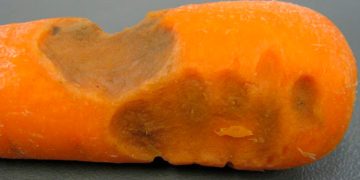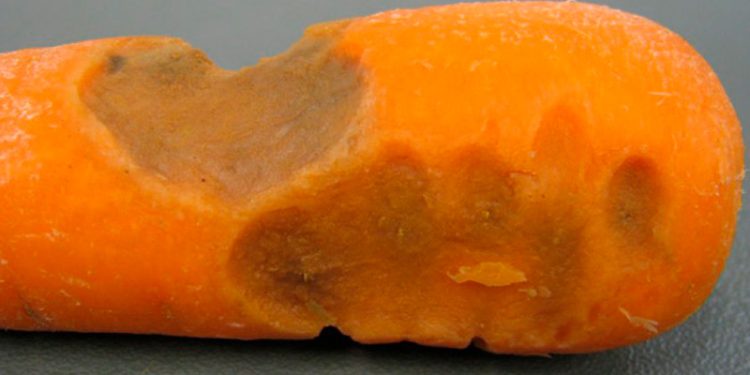#PlantDisease #Agriculture #CropLosses #Sanitation #DiseaseResistance #PectobacteriumCarotovorum #BacterialInfection
Bacterial soft rot caused by Pectobacterium carotovorum is a common disease that affects a wide range of crops including potatoes, carrots, and onions. This disease is highly destructive and can cause significant economic losses in the agricultural industry. In this article, we will delve into the causes, symptoms, and consequences of this disease.
Pectobacterium carotovorum is a gram-negative bacteria that thrives in warm and humid environments. It enters the plant tissues through natural openings or wounds, causing a softening of the tissues and a characteristic foul odor. Infected plants often exhibit wilting, yellowing, and stunting of growth.
The development of bacterial soft rot can have severe consequences on the agricultural industry. The bacteria can quickly spread to other plants, leading to significant crop losses. Additionally, the infected crops are often unsuitable for consumption or processing, resulting in a loss of revenue for farmers.
Preventing bacterial soft rot is crucial for farmers and requires proper sanitation practices and the use of disease-resistant plant varieties. Infected plants should be promptly removed from the field to prevent the spread of the bacteria. In severe cases, chemical treatments may be necessary to control the spread of the disease.
Bacterial soft rot caused by Pectobacterium carotovorum is a serious disease that can have significant consequences on the agricultural industry. Proper sanitation practices and disease-resistant plant varieties are essential for preventing the spread of this disease.































